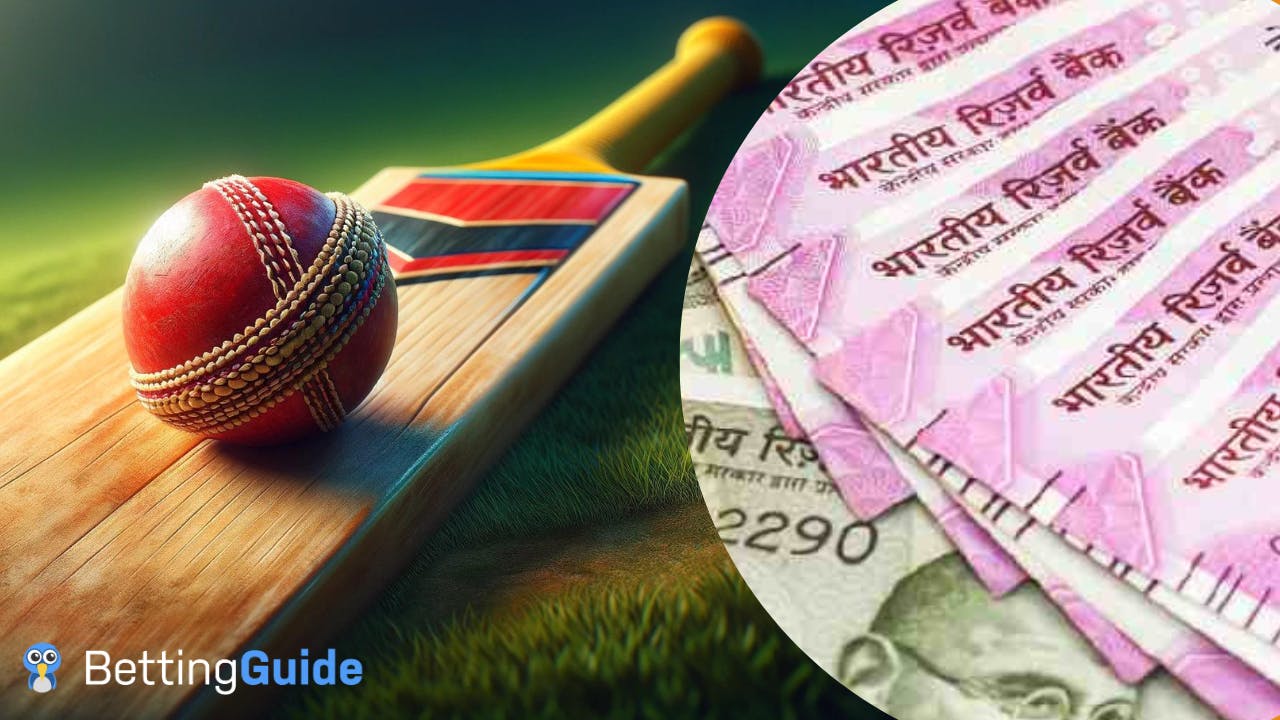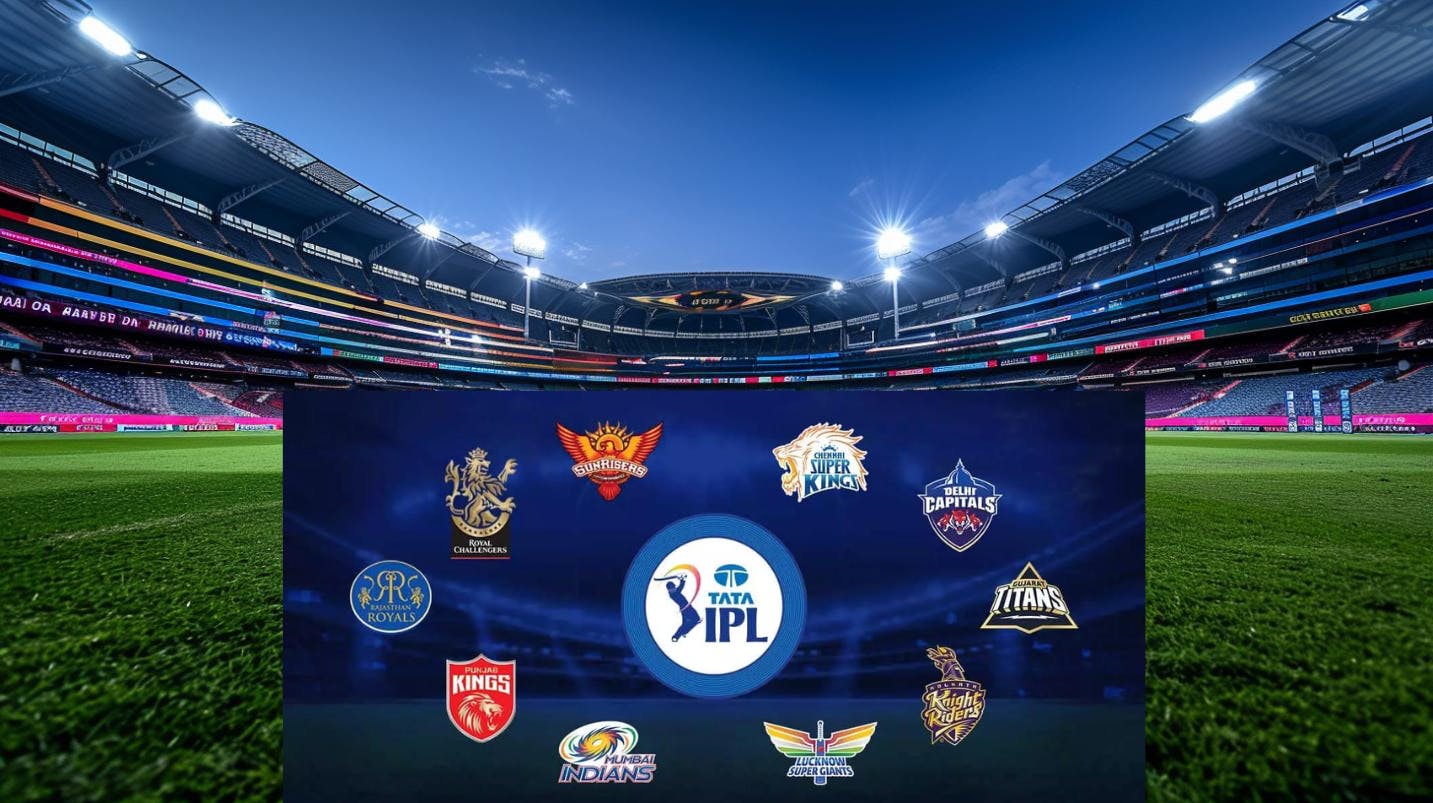Cricket is a significant economic force in India. It accounts for a whopping 85% of the country’s sports economy, with the Indian Premier League (IPL) being a major contributor to this share. The IPL alone has contributed billions to the Indian GDP, making it a pivotal event in the sports calendar.
In India, the betting market during the IPL season is staggering, with estimates suggesting that the illegal market alone could be worth up to ₹9.9 lakh crore. Let’s dive into the economics of IPL betting and understand its sheer scale in India, which plays a significant role in 85% of the sports economy attributed to cricket.
The Scale of IPL Betting

The growth of the IPL betting market over the years has been nothing short of meteoric. The online sports betting market in India is projected to reach INR US$1.97bn in 2024, with an annual growth rate (CAGR 2024-2028) of 6.98%, resulting in a projected market volume of INR US$2.58bn by 2028.
This growth is fueled by the increasing popularity of cricket and the IPL, coupled with the rise of digital platforms that offer a convenient betting experience.
Official vs. Illegal Betting Market
The contrast between the official and illegal IPL betting markets is stark. The official market, while growing, is limited by legal restrictions and is mostly catered to by offshore betting sites.
On the other hand, the underground market is vast and operates primarily in cash, making it difficult to track and regulate. It’s estimated that 80% of the sports betting market in India is cricket-based, with the IPL being the prime focus.
Illegal betting has long been the predominant form of gambling in India, primarily due to the limited internet access across vast swathes of the country. For many, legal online betting, which necessitates stable internet connectivity to access international betting sites, is a luxury beyond reach.
This has led to a proliferation of illegal betting dens that offer a more accessible, albeit riskier, alternative to the average bettor.
However, the landscape is shifting. India’s internet penetration has grown rapidly, with users skyrocketing each year. This digital revolution is slowly making online betting legal and viable for a larger population.
As more people gain access to reliable internet services, the allure of illegal betting diminishes, paving the way for a more regulated and secure betting environment.
Economic Impact of IPL Betting
While the exact figures are elusive due to the nature of illegal betting, it’s estimated that the market could be worth up to ₹9.9 lakh crore. This includes money spent on betting and the associated industries such as hospitality, broadcasting, and advertising.
As we mentioned above, the online sports betting market in India is projected to reach INR US$1.97bn in 2024, with an annual growth rate (CAGR 2024-2028) of 6.98%, resulting in a projected market volume of INR US$2.58bn by 2028.
These figures highlight the substantial financial involvement in IPL betting and the market's consistent growth over the years. The potential for job creation and revenue generation through a regulated betting market is immense.
Legalising and regulating betting could lead to new businesses, from online platforms to brick-and-mortar betting shops, creating jobs and contributing to economic growth.
Technology plays a pivotal role in the economic impact of IPL betting. With the advent of mobile IPL betting apps and digital payment systems, the ease of placing bets has increased.
Categories of Revenue Streams of All IPL Teams

What could be the reasons behind the high salaries of Indian cricketers compared to their international counterparts? The growing interest in cricket and cricket betting among the populous nation plays a significant role.
As the fan base expands, so does the sport's visibility, leading to larger sponsorship deals influenced by the audience size. Consequently, higher viewership translates into increased sponsorship income.
The financial structure of IPL franchises can be broken down as follows:
- Earnings from media rights
- Income from sponsorships
- Revenue from ticket sales
- Profits from renting out stalls at venues
- Winnings from prize money
-
Earnings from media rights
Teams form agreements with the Board of Control for Cricket in India (BCCI), which holds the organisational rights for the IPL. The BCCI collects broadcasting revenues and then distributes them among the eight teams, minus certain expenses.
Distribution is based on team performance, with higher-ranked teams receiving a larger portion of the media revenue at the end of the season, a method similar to the weighted average. Media rights contribute approximately 60% to 70% of a team's total revenue, known as Central Rights Income.
-
Income from sponsorships
This revenue stream includes branding on player jerseys, helmets, training gear, and boundary barricades. Sponsor visibility, particularly names and logos prominently displayed on the front or back of jerseys, directly correlates with sponsorship value due to television exposure.
Sponsorship contracts typically last one year and can include additional benefits such as event collaboration with players, brand promotion, and complimentary hospitality tickets. Sponsorships account for about 20% to 30% of a team's revenue.
-
Revenue from ticket sales
Revenue from stadium ticket sales is allocated to the respective home team. The team owners set ticket prices, considering various elements such as the stadium's seating capacity and the city's average income levels.
For example, ticket prices might start at different rates depending on the stadium and city, like Eden Gardens in Kolkata versus Chepauk in Chennai, with the objective being to fill the stands to enhance the live viewing experience and attract greater television audiences. As agreed upon, some tickets are reserved for sponsors and the BCCI.
Ticket management, including sales and revenue collection, is often contracted out to external companies like Big Tree Entertainment, which takes a commission of 1% to 5% of total ticket sales. Ticket revenues constitute around 10% of an IPL team's total income.
-
Profits from renting out stalls at venues
Food service to fans at the games is usually contracted out to a third-party provider, who may further subcontract. These contracts are generally for a set fee and are charged per stall, per match.
-
Winnings from prize money
The prize money awarded to the teams is directed to the owners, who then decide how it is distributed among the players and support staff. It is commonly stipulated that at least fifty percent of this prize money should be shared with the players.
A team's profitability in the IPL is significantly influenced by its ability to draw large crowds and high television ratings, even more so than its performance on the field.
Although on-field success is a factor, it does not predominate. Kolkata Knight Riders (KKR) is a prime example of this phenomenon, having turned a profit in their inaugural season despite a lack of match success. This demonstrates that audience engagement and viewership can considerably impact a team's financial success.
The Delicate Dance of Profit and Integrity in IPL Betting
The vibrant betting market accompanying each IPL season is a testament to the league’s immense popularity and the financial opportunities it presents. Yet, the true success of this enterprise hinges not on the wealth it generates but on the ethical standards it upholds.
Strict regulations must be established to navigate this landscape responsibly and deter illegal activities threatening the sport’s integrity. The discourse surrounding IPL betting must mature as we look to the future. It is a conversation that extends beyond mere financial stakes to encompass the well-being of the sport and its ardent followers.
The longevity of IPL betting rests on the industry’s commitment to self-regulation and the collective resolve of all stakeholders to confront ethical dilemmas with transparency and courage.

I am an avid reader and passionate writer. I have been working in the content writing industry for the past 10 years now and I have written hundreds of content pieces that cover the world of gambling. With a passion for all things related to casinos, sports betting, and online gaming, I bring a unique perspective and in-depth knowledge to my pieces. From strategy guides to reviews and analysis, my goal is to provide readers with the information they need to make informed decisions and enhance their experience. Let's win big together!

